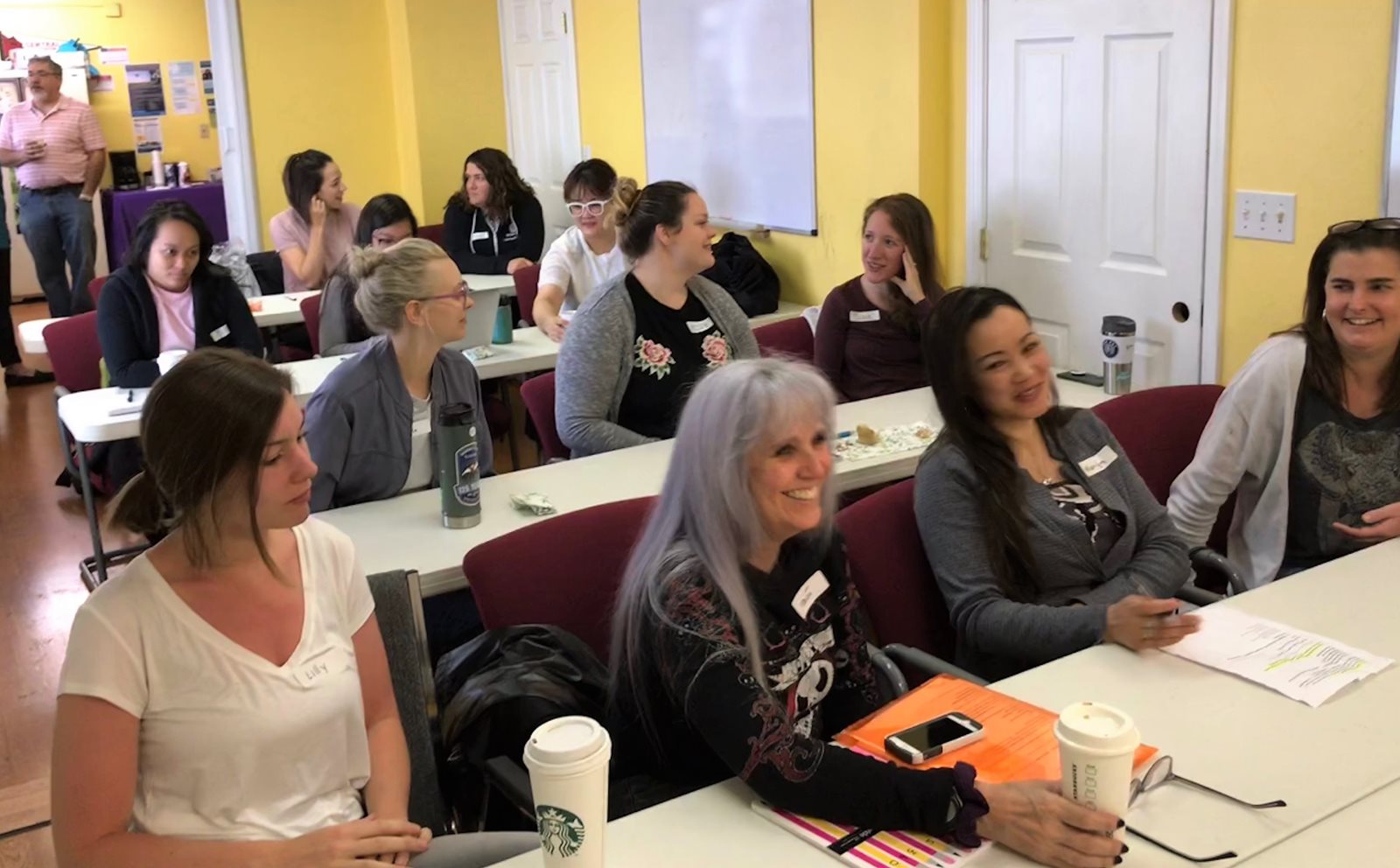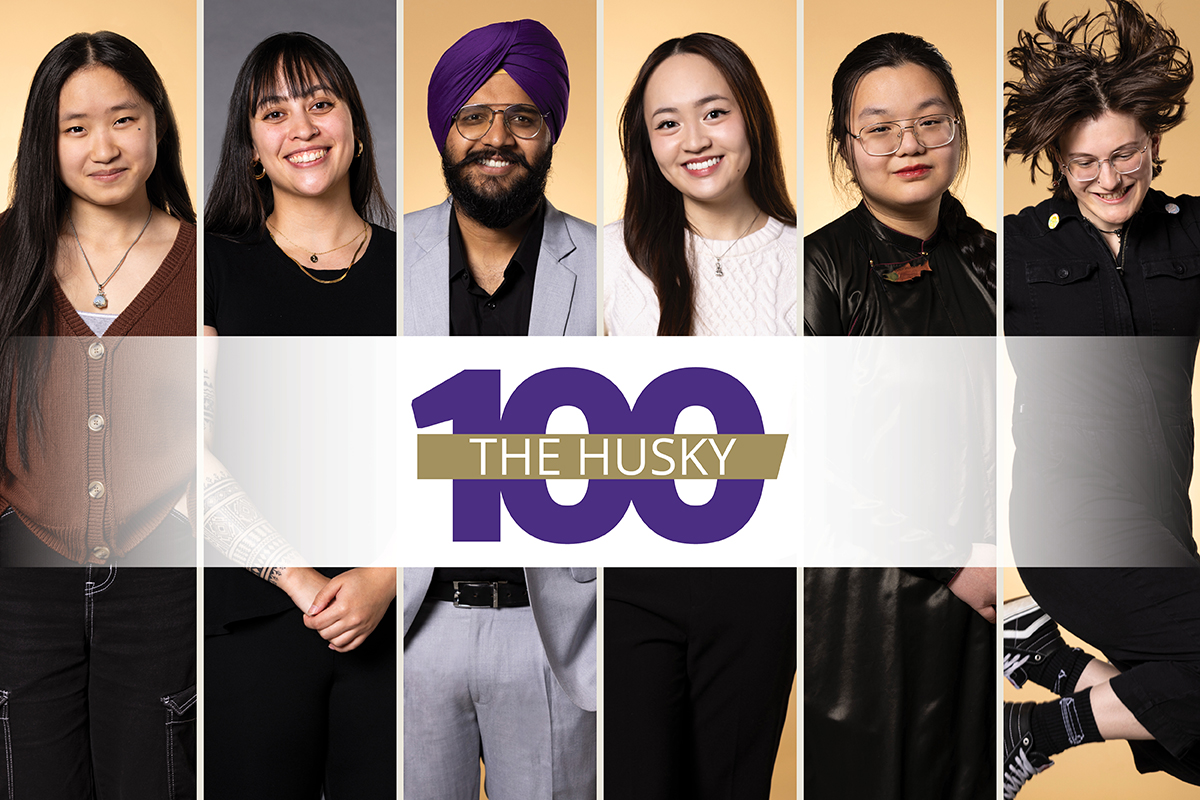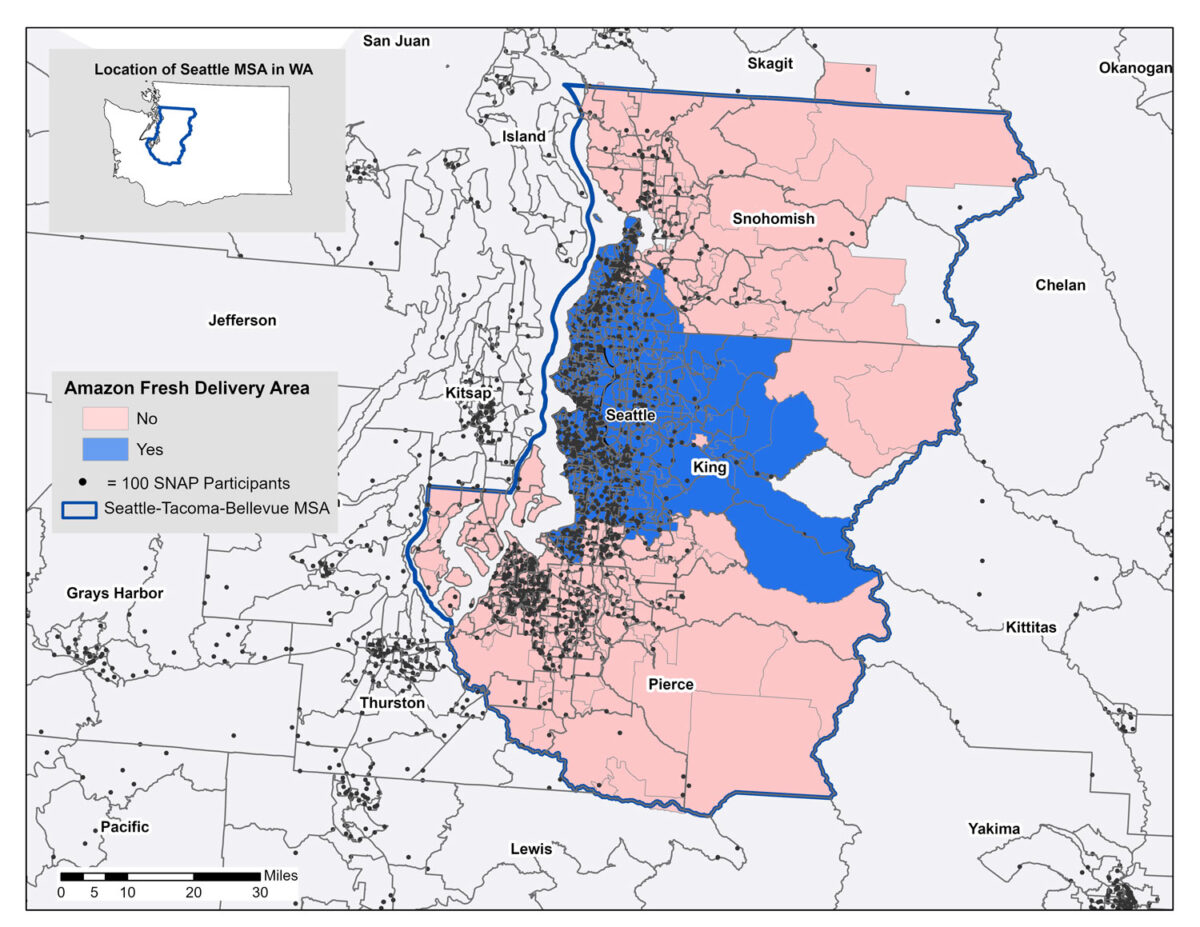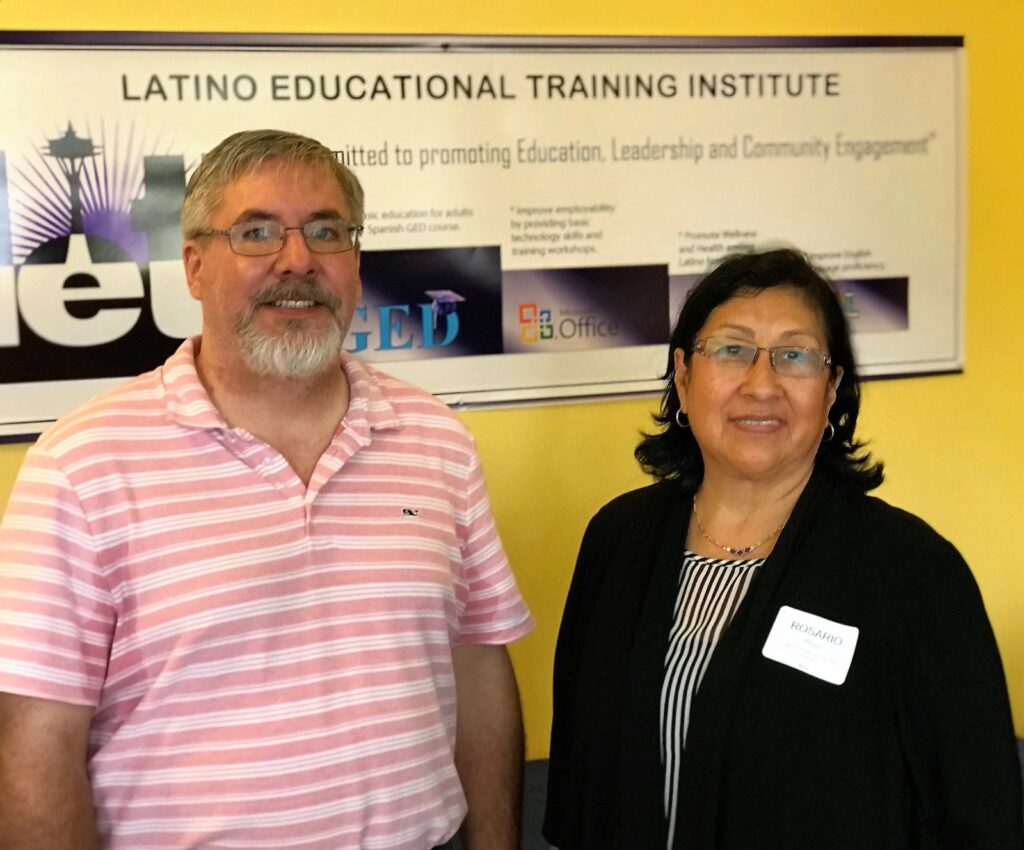
By Douglas Esser
Three University of Washington Bothell courses with a total of 50 students are engaged in community-based learning and research (CBLR) projects this summer with the Latino Educational Training Institute (LETI), a Lynnwood nonprofit that serves the Latino community in south Snohomish County.
UW Bothell started its partnership with LETI three years ago, and some faculty involve their classes almost every quarter, said Kara Adams, UW Bothell’s director of community engagement. The University has dozens of such partner organizations and businesses, and LETI is one of just six on its community engagement council, she added.
Now working with LETI are students in Approaches to Cultural Research with Raissa DeSmet, lecturer in the School of Interdisciplinary Arts & Sciences; Population Health Community Practice with Annie Bruck, senior lecturer in the School of Nursing & Health Studies; and Program Planning & Strategies for Health Promotion with Carrie Lanza, lecturer in the School of Nursing & Health Studies.

The students’ projects in these courses all relate to the annual Latino Expo, scheduled for Aug. 4 at Edmonds Community College where as many as 1,000 people will enjoy food, music and cultural dance along with educational workshops and medical screening. As part of its mission to strengthen community ties, the expo also showcases products and services for and by the Latino community.
DeSmet’s students, organized in teams, have worked on event planning, sponsor recruitment, and communications and marketing. “It’s an amazing opportunity for students to have a high impact on a high-profile event,” said DeSmet, who believes CBLR is a transformative student experience.
UW Bothell’s partnership with LETI is a mutually beneficial relationship with a community that often mirrors the students’ own backgrounds. “That’s a beautiful fit for who we are,” said DeSmet.
Bruck’s students support the expo by surveying attendees of occupational health and safety training sessions and providing information on topics such as diabetes and high blood pressure. In addition, some members of Bruck’s class are evaluating data from an earlier community health event. Such evaluations are valuable in documenting LETI’s impact — crucial data for grant applications.
LETI works with Lanza’s students to promote health services and help assure that food vendors at the expo pass health inspections.
Rosario Reyes founded LETI nearly 20 years ago when she saw the demand for education and social services while working to promote Latino entrepreneurs. Tom Laing became associate director three years ago. The former accountant runs programs and applies for grants. They are the only two full-time staff members.
“Rosario’s job is to save the world, and my job is to figure out how to pay for it,” Laing said.
Reyes said the UW Bothell relationship is invaluable for bringing new perspectives and professional-level support. LETI reciprocates by showing young professionals how a small community organization survives.
“You have to be creative. You have to have flexibility. You have to be on the ground running to accomplish anything,” Reyes said.
The UW Bothell partnership also adds to LETI’s credibility, Reyes and Laing said.
“It raises the community’s perception of LETI in general, which is helpful for fundraising, helpful for partnerships. It helps people take us seriously,” Laing said. “Everybody already knows what Rosario does for the community. Now people are recognizing that as an organization we have more value to add.”
LETI has hosted a women’s health program, conducted occupational health and safety training in Spanish, taught financial literacy for the state Office of Financial Institutions and helped retrain injured workers for the state Department of Labor and Industries. It is one of the few service providers for Latinos in the area between Everett and north Seattle where the population is 14 percent Hispanic, Laing said.
Bruck, who has had past nursing classes work with LETI, said it provides an important service to the community and to UW Bothell students.
“They are such active partners, it’s a gift to work with them,” said DeSmet, whose class last summer also worked with LETI on community building.
At an orientation session June 25 in the yellow, two-story building off Highway 99 that houses LETI, Bruck’s RN-to-BSN students learned about the nonprofit and discussed the Latino Expo. Samantha Hershey and Erin Lee VanSlogteren, left, who care for patients in a neuroscience ward at Harborview Medical Center in Seattle, said they welcomed the community health requirement for their BSN degree.
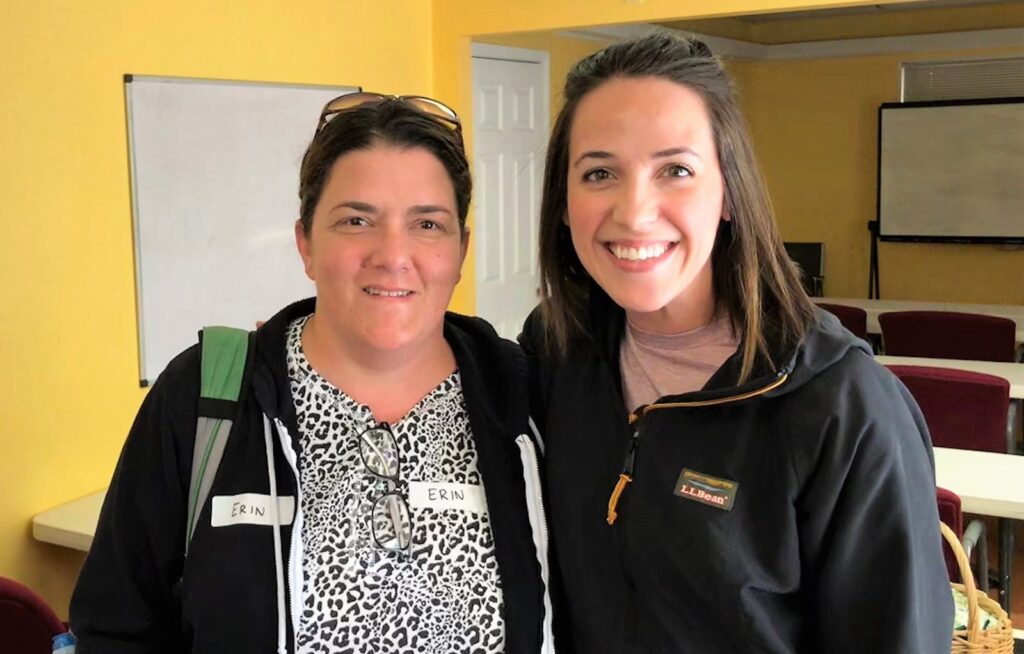
“This is my first experience as a registered nurse getting into the community and getting educated on how to support people. I usually see people when they’re acutely injured in the hospital, and I’m not really exposed to their resources,” said Hershey, above right.
“Community health is a big, broad subject that needs attention. As populations continue to grow and economies continue to change, we just really need to be there,” said VanSlogteren, who hoped her data collection work might help LETI qualify for grants in the future.
In addition to UW Bothell, LETI also has a strong partnership with the nearby Edmonds Community College, which hosts the Latino Expo and programs such as Spanish GED classes and a Latino leadership initiative.
